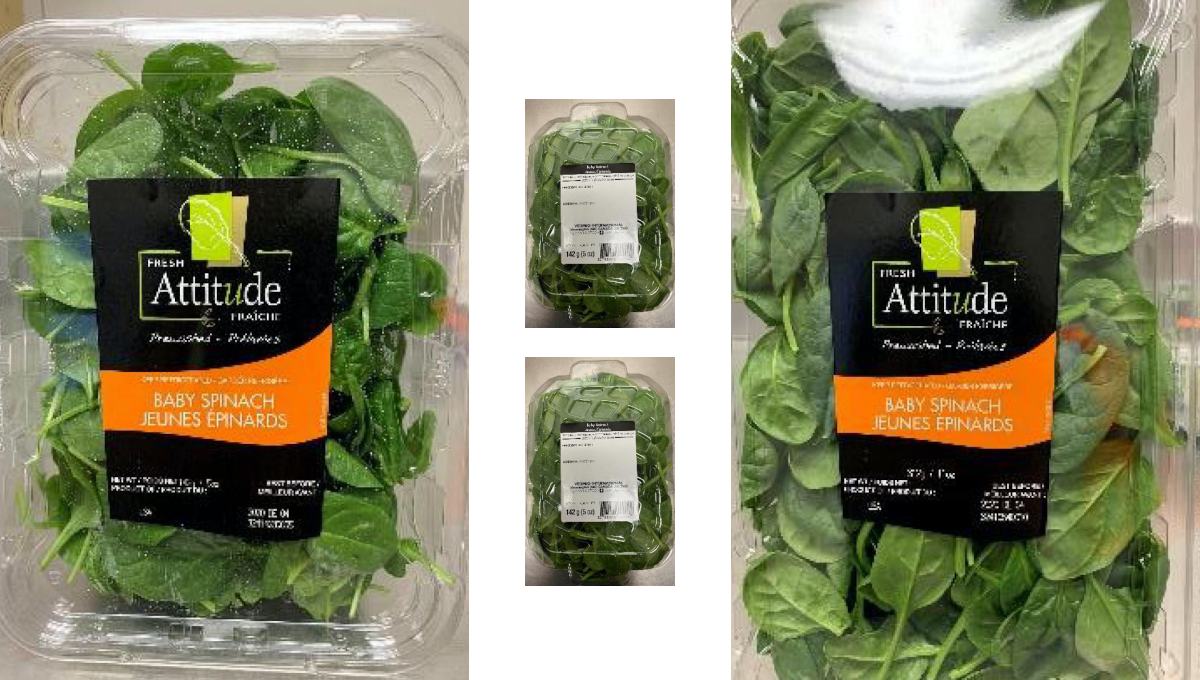Everything Parents Need to Know About Spinach Recall
Welcome, conscious parents! If spinach is a staple in your family’s diet, it’s imperative to be updated on the latest recall information to ensure the safety and well-being of your loved ones. Spinach recalls can occur due to various reasons, such as contamination with harmful bacteria or other foreign substances. This guide serves as your go-to resource for understanding the ins and outs of a spinach recall. Keep your family healthy and worry-free with our helpful insights!
Understanding Spinach Recalls
Recalls on food products, including leafy greens like spinach, are typically initiated when there is a potential health risk to consumers. This could involve contamination with pathogens like E. coli, Salmonella, or Listeria, which can lead to severe illnesses, particularly in children, the elderly, and those with weakened immune systems.
Why Spinach Recalls Happen
There are multiple reasons why spinach might be recalled:
- Microbial Contamination: This is the most common cause, where harmful bacteria is found in the product.
- Pesticide Residues: Excessive or banned pesticides detected in the spinach can lead to a recall.
- Mislabeling: Incorrect labels, such as ones not stating potential allergens, can prompt a recall for the safety of consumers.
- Foreign Objects: The presence of any unintended material like plastic or metal can also cause a recall.
What Parents Should Do During a Spinach Recall
If a recall on spinach has been issued, here’s how you can maneuver through it safely:
- Stay Informed: Register for alerts from the Food and Drug Administration (FDA) or the U.S. Department of Agriculture (USDA) and check reputable news sources.
- Identify the Recalled Product: Check the details of the recall, such as the brand, lot number, and sell-by dates, to see if you have purchased the affected spinach.
- Stop Consumption: If you have the recalled spinach at home, do not consume it. Segregate it from other food items to avoid cross-contamination.
How To Check If Your Spinach Is Affected
When you hear about a spinach recall, the first step is to check if the spinach you have at home is among the affected products. Look for the following information on the packaging:
- Brand Name
- Product Description
- Batch/Lot Numbers
- Sell-By or Use-By Dates
- UPC Codes
Compare this information with the recall details provided by the authorities. If there is a match, make sure you follow the specific instructions provided for the recalled product.
Health Risks Associated With Contaminated Spinach
Consuming contaminated spinach can lead to a range of health issues, some of which are particularly dangerous for young children and those with weakened immune systems. Here’s what you need to know about the health risks:
- Food Poisoning: Symptoms can include stomach cramps, diarrhea, vomiting, and fever.
- Long-Term Health Consequences: Certain bacteria, such as E. coli, can lead to more severe conditions like Hemolytic Uremic Syndrome (HUS), which can cause kidney failure.
- Pregnancy Risks: Pregnant women need to be extra cautious as certain bacteria can harm the unborn child.
Understanding these risks emphasizes the importance of staying vigilant and proactive during a recall. Now, let’s dive into how you can minimize risk and manage a spinach recall efficiently as a parent!
Stay tuned as this guide continues to expand with more essential tips and advice for keeping your family safe during a spinach recall. It’s all about being informed, prepared, and ready to take the right action to protect your health and the health of your loved ones.

Five Things Parents Should Know in Preparing for a Spinach Recall
As a parent, you want to be ready if a spinach recall is announced. Here’s what you need to know:
- Have a Go-To Safety Checklist: Keep a simple checklist on your fridge or a digital note on your phone detailing the steps to take during any food recall. Include points like how to check the product lot number, who to contact for more information, and how to dispose of the product safely.
- Maintain Updated Contact Information: Ensure you have up-to-date contact lists for your local health department, the nearest hospital, and family members who may need to provide assistance with your children in case of an emergency.
- Educate Your Family Members: Teach everyone in your household, especially older children, about the importance of food safety. Make sure they know not to consume foods that you’ve marked as potentially unsafe, and how to recognize symptoms of foodborne illnesses.
- Know Your Local Grocery Store’s Policies: Familiarize yourself with the recall policies of your go-to grocery store. Most stores offer a refund or replacement for recalled foods, but it’s best to know the process ahead of time to avoid confusion.
- Be Prepared to Switch Foods Temporarily: In case of a recall, be ready to switch to alternative nutritious greens like kale or chard. Keeping a diverse menu ensures that your family won’t miss out on essential nutrients if spinach needs to be temporarily removed from your diet.
How to Dispose of Recalled Spinach
Once you’ve identified that you have recalled spinach at home, the proper disposal is critical to ensure safety. Here are the steps:
- Do Not Donate or Give Away: It’s important not to pass on potentially contaminated food to others.
- Seal and Discard: Seal the spinach in a plastic bag and place it in a garbage bin with a lid to prevent animals from accessing it.
- Clean Surfaces Thoroughly: After disposal, clean any surfaces the spinach may have touched, including your refrigerator, kitchen counters, and storage containers, with hot soapy water or a disinfectant.
Alternatives to Spinach During a Recall
When spinach is off the menu, consider these nutritious alternatives:
- Collard Greens
- Swiss Chard
- Baby Kale
- Arugula
- Romaine Lettuce
These greens can be used in salads, smoothies, and cooking, just like spinach, ensuring your family’s meals remain wholesome and delicious!
FAQs for Parents During a Spinach Recall
Got questions? We’ve got answers:
- How will I know if my homegrown spinach is safe? Homegrown spinach is generally safe if you’re confident it hasn’t been exposed to the contaminants involved in the recall. Nevertheless, practice safe handling and washing techniques.
- Can washing my spinach remove contaminants? Unfortunately, washing doesn’t always remove all harmful bacteria. It’s safer to dispose of any recalled spinach.
- What should I do if my child has already eaten recalled spinach? Monitor them closely for any signs of illness and consult with a pediatrician if symptoms develop.
This guide aims to make the process of handling a spinach recall less daunting for you, savvy parents. Remember, staying informed, proactive, and calm is the key to managing any recall effectively. With these tips, you’re well on your way to protecting your family’s health, no matter what comes your way!
For more great articles please see here. For more information see here
Disclaimer
The articles available via our website provide general information only and we strongly urge readers to exercise caution and conduct their own thorough research and fact-checking. The information presented should not be taken as absolute truth, and, to the maximum extent permitted by law, we will not be held liable for any inaccuracies or errors in the content. It is essential for individuals to independently verify and validate the information before making any decisions or taking any actions based on the articles.




